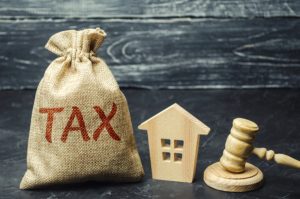
Holiday Lets and Tax – What you need to know
We take a look at some of the tax issues holiday homeowners need to be aware of in this article Holiday Letting ~ A Tax Overview…
Have you declared your holiday rental income?
When you begin letting a holiday home it’s imperative you tell HMRC (Her Majesty’s Revenue and Customs) about your new rental income as you may have to pay tax on it.
If you’re new to renting a holiday home or have been letting your property for some time and not yet instructed HMRC, it’s advisable to approach them in order for your case to be considered more favourably.
HMRC are currently running a ‘Let Property Campaign’; this encourages holiday homeowners to declare unpaid tax on their let property in order to gain the best possible terms on their tax return.
If you’d like to find out more about this scheme please click here to read our full article on the HMRC Let Property Campaign.
How much holiday rental income do I need to gain before declaration?
If you own a holiday home in your own name, HMRC indicate you must report any rental income above £2,500 in a year through your Self Assessment tax return.
If the rent from your holiday cottage is less than this figure you’ll need to report it to the Self Assessment Helpline by calling 0300 200 3310 (+44 161 931 9070 if you are calling from outside the UK).
What if my holiday cottage is owned by a company?
If your holiday home is owned by a company you’ll be required to show rental income in the same way as any other business income.
What costs can I claim to reduce the tax on my holiday home?
As a holiday homeowner your property may be eligible for Furnished Holiday Letting Rules, which provide potentially advantageous treatment of ‘self catering’ accommodation, treating your property as a trade (from which you create profit and a living from it) rather than an investment.
If you are able to qualify you’ll be allowed to claim capital allowances on furniture and furnishings in your holiday home, as well as equipment used outside the cottage, such as tools for maintenance.
You will also be able to claim a range of Capital Gains Tax reliefs, such as Business Asset Rollover Relief, or with many holiday homes owned by married couples, be able to allocate profits in any proportion required, irrespective of the spouses actual shares in the ownership of the property.
How do I qualify?
You’ll only be able to claim these benefits if all the following apply:
- Your holiday home is open to guests for at least 210 days a year.
- Your holiday home is let for more than 105 days a year.
- No single guests stays for more than 31 days.
- You charge the going rate for similar holiday homes in the area (referred to as the ‘market value’).
If you own the property personally, your profits count as earnings for pension purposes.
Spring Budget 6th March 2024 – Update on the Furnished Holiday Letting Tax Rules
In the 2024 Spring Budget, the Chancellor Jeremy Hunt announced the governments intention to abolish the Furnished Holiday Lettings (FHL) tax regime from 6 April 2025, meaning short-term and long-term lets will be treated the same for tax purposes. Draft legislation will be introduced in due course. If passed, individuals with FHL and non-FHL properties will no longer need to calculate and report income separately.
Click here for the latest Guidance document on Furnished Holiday Lettings Self-Assessment.
Working out your holiday home profits for tax
If you have holiday homes that qualify as Furnished Holiday Lets it’s important to work out the profit or loss from these in isolation.
This is to ensure you only claim the favourable tax conditions on qualified properties.
If you own other cottages that don’t currently qualify you’ll need to work out the net profit or loss of all of the properties, as if it is one single business.
What if your holiday home makes a loss?
Deduct any losses from your profit and enter the figure on your Self Assessment form. You can potentially offset a loss against future profits by carrying it forward to a later year, or against profits from other furnished holiday lettings (if you own more than one holiday home).
For more information on Holiday Home tax please visit:
Here are some helpful links on the Furnished Holiday Letting Tax Rules to complement the information contained in Holiday Letting ~ A Tax Overview:
- Furnished Holiday Lettings Tax Helpsheet 253 from HMRC
- How to qualify under the Furnished Holiday lettings Tax Rules from Boshers Holiday Home owner Blog
- Furnished Holiday Lettings Tax Guide from Boshers Holiday Home Owner Blog
- HMRC Let Property Campaign from Boshers Holiday Home Owner Blog
Please note that this article gives only an overview of Holiday Letting ~ A Tax Overview and is not intended as Tax Advice. We suggest you take advice from a qualified professional before making any decisions in this area or contact the HMRC for further guidance.
As holiday home insurance specialists we understand the needs of holiday letting owners and our policy includes valuable legal expenses cover for HMRC taxation investigations provided that the insured has taken reasonable care to submit complete tax returns within statutory time limits. For more information on how a specialist insurer can help and support your holiday home business, please give us a call on 01237 429444.